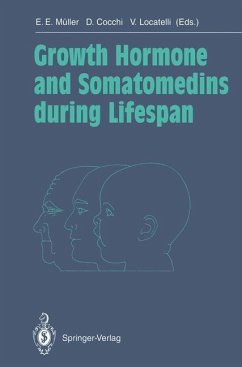
Therapeutic Outcome of Endocrine Disorders
Efficacy, Innovation and Quality of Life
Herausgegeben: Stabler, Brian; Bercu, Barry B.

PAYBACK Punkte
33 °P sammeln!
Changes in the allocation of healthcare resources have raised issues related to the efficacy and outcomes of medical therapy and how such factors may be measured. The questions associated with the quality of life and functional capability of patients with chronic health conditions have been of special interest. Endocrine disorders have the potential for disrupting the general health and well-being of affected individuals and their families; thus they warrant serious attention. This symposium was convened in November 1997 at Palm Beach Gardens, Florida, to bring together medical, behavioral, an...
Changes in the allocation of healthcare resources have raised issues related to the efficacy and outcomes of medical therapy and how such factors may be measured. The questions associated with the quality of life and functional capability of patients with chronic health conditions have been of special interest. Endocrine disorders have the potential for disrupting the general health and well-being of affected individuals and their families; thus they warrant serious attention. This symposium was convened in November 1997 at Palm Beach Gardens, Florida, to bring together medical, behavioral, and social scientists. The meeting fostered the presentation and discussion of the most current clinical research on the effects of various therapies on a wide range of endocrine disorders from diabetes to adrenal insufficiency and growth hormone deficiency. The participants, all noted national and international experts in their fields, focused their attention on both the biomedical value and effectiveness of treatment, as well as on the impact such treatments have on psychological states such as mood and cognition. Many presentations specifically emphasized the quality of life (QOL) indicators that now regu larly appear in many research protocols and reports. The pioneering work of two clinical researchers was a major highlight of the meeting and an Award of Recognition was presented to Robert Blizzard, M. D. , and John Money, Ph. D. , for their innovative and insightful work in pediatric endocrinology and psychosexual development.














